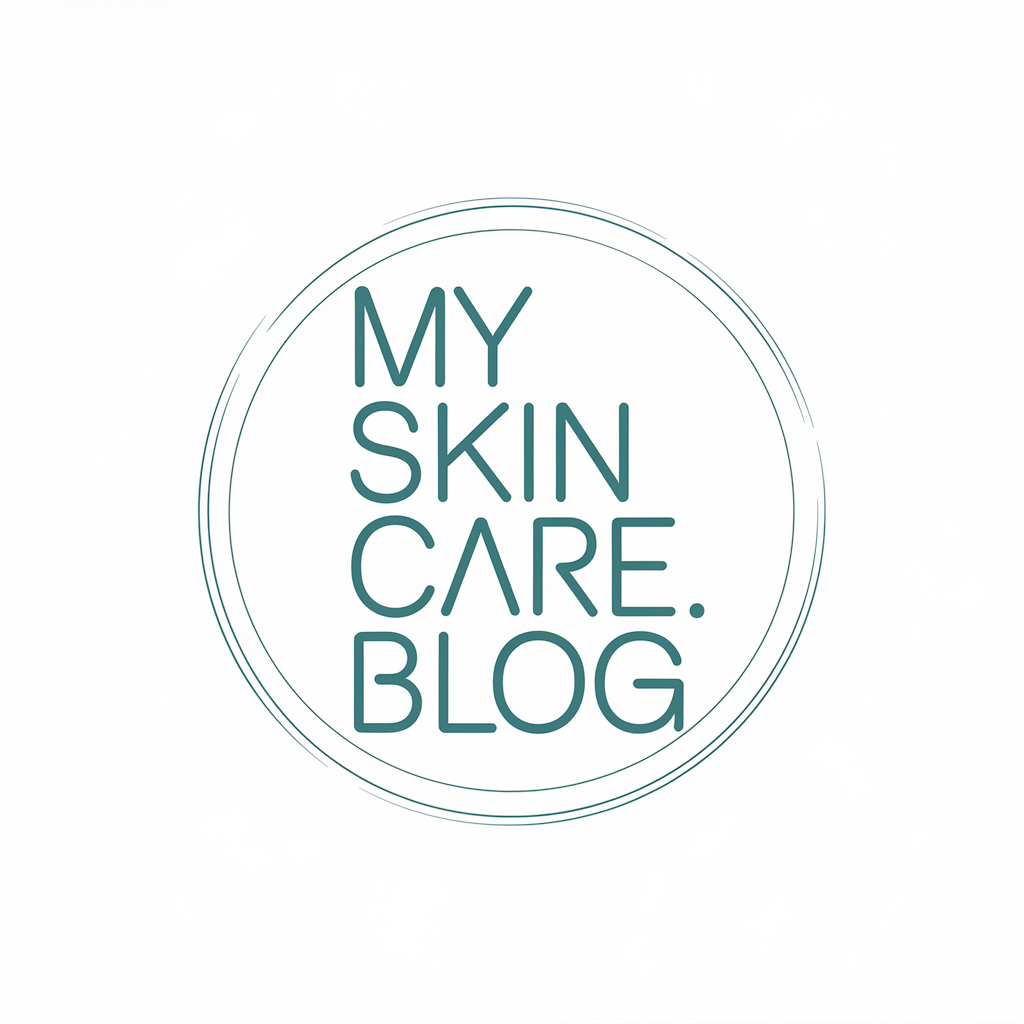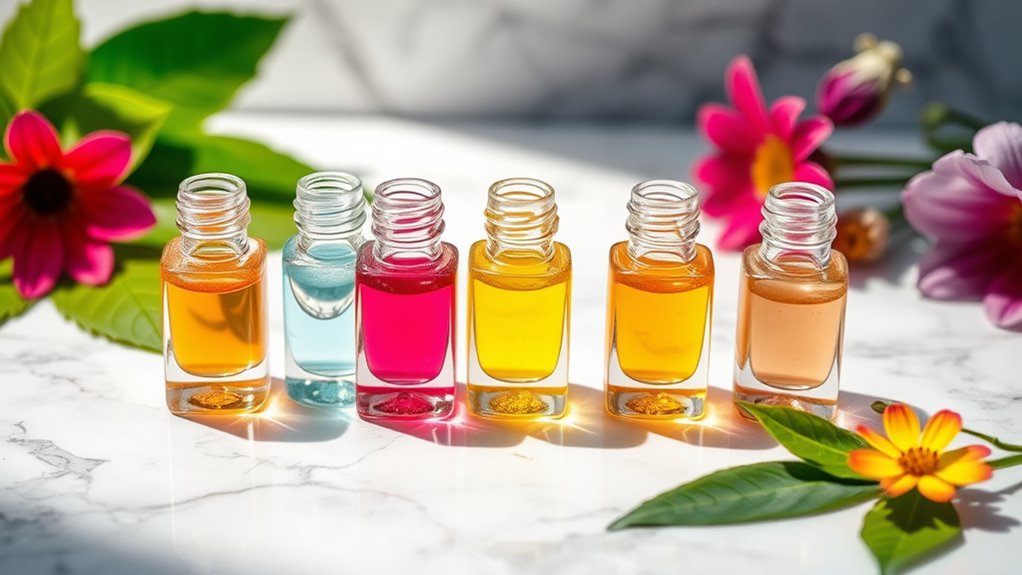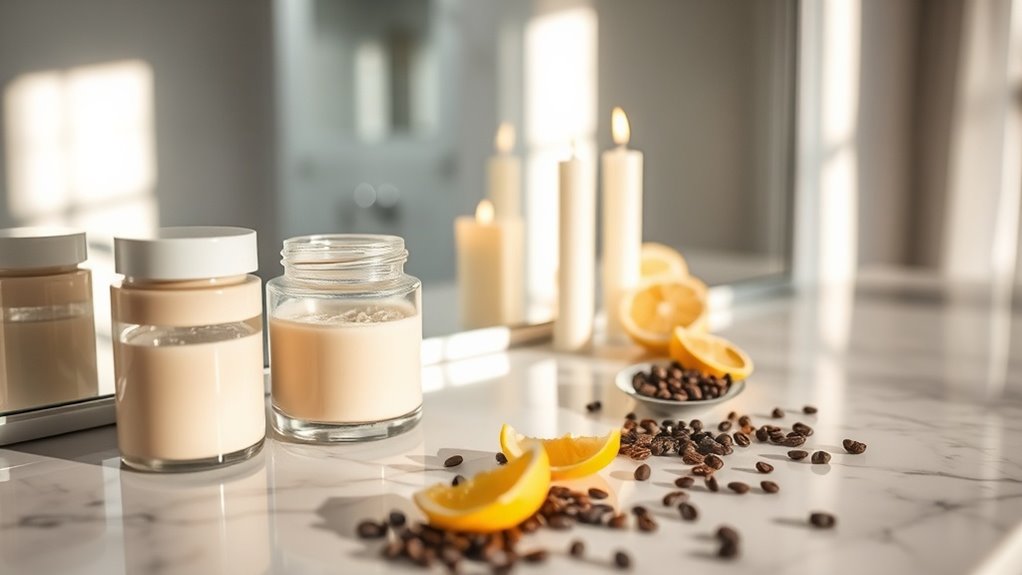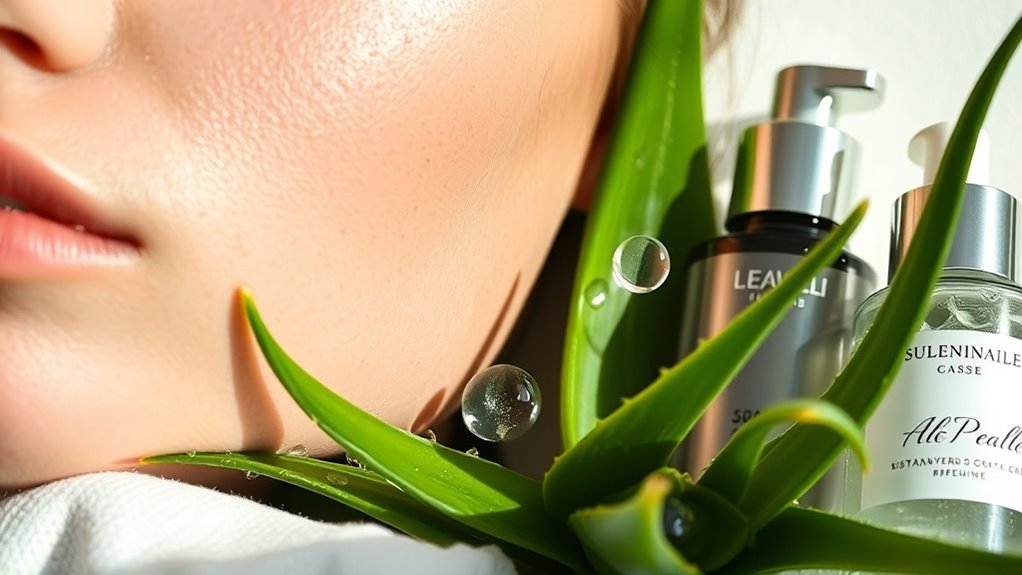5 Ingredients That Can Make Acne Worse (Even in ‘Clean’ Products)
When it comes to skincare, even products labeled as “clean” can harbor ingredients that worsen acne. You might think you’re doing your skin a favor, but certain compounds can actually trap impurities and trigger inflammation. Understanding which ingredients to avoid is essential for maintaining clear skin. Let’s explore five specific ingredients that can sabotage your efforts, leading to unexpected breakouts.
Key Takeaways
- Silicone Compounds: These can trap dirt and bacteria on the skin, leading to clogged pores and increased acne flare-ups.
- Certain Alcohols: Denatured and isopropyl alcohols strip moisture, potentially causing skin to overproduce oil and clogging pores.
- Fragrance and Essential Oils: These can irritate the skin, disrupt the barrier, and trigger inflammation, worsening acne sensitivity.
- Heavy Oils and Butters: Ingredients like coconut oil and shea butter can create thick barriers that trap bacteria and exacerbate breakouts.
- Comedogenic Ingredients: Such ingredients clog pores and can worsen acne, making it crucial to choose non-comedogenic options for clearer skin.
Silicone Compounds
Silicone compounds, commonly found in various skincare products, can contribute to acne flare-ups for some individuals.
These acne ingredients create a barrier that may trap dirt, oil, and bacteria on the skin’s surface.
If you’re prone to breakouts, using products with silicones might exacerbate your condition.
While they offer a smooth texture and enhance product application, their occlusive nature can hinder skin’s ability to breathe.
Additionally, silicones can lead to clogged pores, further aggravating acne.
It’s essential to read labels carefully and consider alternatives if you notice increased breakouts after using silicone-containing products.
Prioritize your skin’s health for better outcomes. Furthermore, understanding toxic ingredients in skincare can help you make informed decisions when selecting products for your routine.
Certain Alcohols
Many skincare products contain certain alcohols that can worsen acne for some individuals. These include denatured alcohol and isopropyl alcohol, which act as astringents and can strip your skin of essential moisture.
When your skin becomes dehydrated, it may overproduce oil, potentially leading to clogged pores and breakouts.
While some alcohols, like fatty alcohols, are generally safe and hydrating, it’s essential to check labels. Identifying harmful ingredients can help you avoid these irritating alcohols in your products. If you notice these irritating alcohols in your products, consider replacing them with more hydrating alternatives.
Always prioritize formulations that promote skin barrier health to mitigate acne flare-ups effectively.
Fragrance and Essential Oils
Fragrance and essential oils are common ingredients in skincare products, but they can aggravate acne for some people.
These additives might feel soothing, yet they often trigger irritation or allergic reactions, leading to breakouts.
Consider the following:
- Fragrances can disrupt your skin’s barrier, making it more sensitive.
- Essential oils may contain compounds that cause inflammation.
- Scented products often hide other harmful ingredients.
Choosing fragrance-free or essential oil-free products can help maintain your skin’s clarity. Additionally, understanding key ingredients can empower you to make informed choices.
Always patch-test new products, especially if you’re prone to acne, to avoid unexpected flare-ups and distress.
Prioritizing your skin’s health is essential.
Heavy Oils and Butters
Heavy oils and butters, while often praised for their moisturizing properties, can exacerbate acne in susceptible individuals.
These ingredients, such as coconut oil and shea butter, create a thick barrier on the skin, potentially trapping bacteria and excess sebum.
If you have oily or acne-prone skin, using heavy oils may lead to increased breakouts and inflammation.
It’s important to assess how your skin reacts to these products. Over-cleansing and harsh treatments can further irritate your skin and worsen acne.
Instead, consider lighter alternatives like non-comedogenic oils, which hydrate without overwhelming your pores.
Always patch-test new products to avoid adverse reactions and consult a dermatologist for personalized advice.
Comedogenic Ingredients
Certain ingredients in skincare products can greatly impact acne-prone skin, especially when they’re comedogenic.
These ingredients can clog pores, leading to breakouts and worsening your skin condition.
It’s essential to be vigilant about what you’re applying to your face.
- You might experience frustration and disappointment when products don’t deliver promised results.
- The emotional toll of persistent acne can affect your self-esteem and confidence.
- Discovering that a “clean” product contains comedogenic ingredients can feel like a betrayal.
Always check labels and seek non-comedogenic options to help maintain clearer, healthier skin. Additionally, understanding common skincare label marketing tactics can empower you to make better choices in selecting products that truly suit your skin needs.





